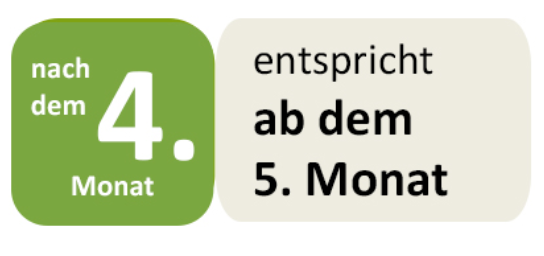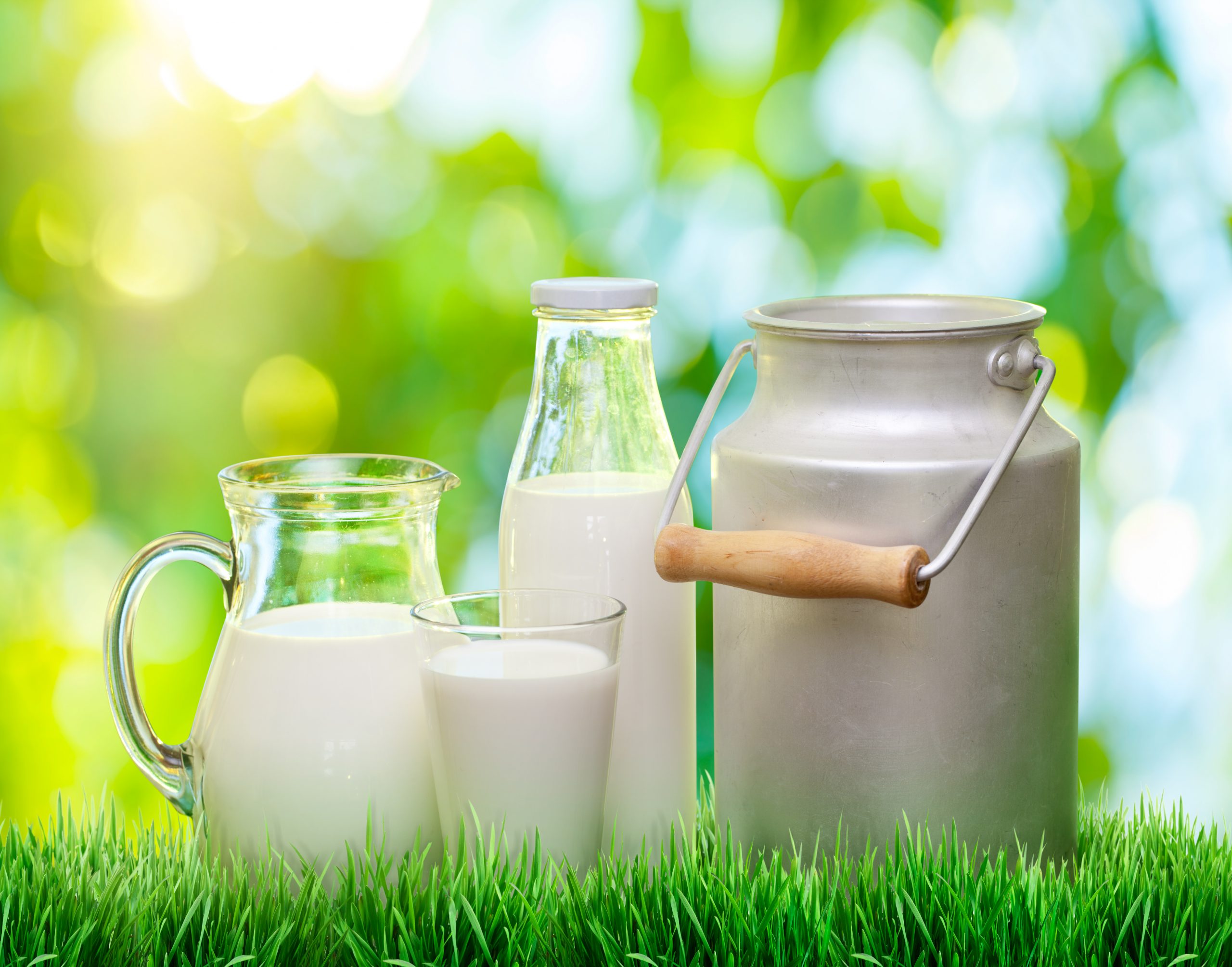Especially during pregnancy and breastfeeding, a diet with a wide variety of foods is important to ensure the supply of energy and nutrients for the baby's growth and development and to prevent maternal deficiencies. This is because the need for nutrients increases more than the need for energy during pregnancy and especially during breastfeeding.
Energy requirement
| Pregnant women | Additional requirements | This quantity is roughly equivalent to... |
|---|---|---|
|
im 1. Schwangerschafts-
drittel
(1. – 12. SSW)
|
No allowance | |
|
im 2. Schwangerschafts-
drittel
(13. – 27. SSW)
|
+ 250 kcal/day *
|
|
|
im 3. Schwangerschafts-
drittel
(28. – 40. SSW)
|
+ 250 kcal/day * (=a total of 500 kcal/day) |
* Source: Reference values for nutrient intake from the German Society for Nutrition, the Austrian Society for Nutrition, the Swiss Society for Nutrition Research and the Swiss Association for Nutrition. Umschau Verlag. 2nd edition, 1st edition 2015.
If the baby is exclusively breastfed, they need breastfeeding women (up to 6 months after birth) about 500 kcal per day more than before pregnancy. If the baby is already receiving complementary foods, the additional calorie requirement depends on how often the baby is breastfed and cannot be clearly stated.
| Breastfeeding women | Additional requirements | This quantity is roughly equivalent to... |
|---|---|---|
| while exclusively is breastfed (up to 6 months) | additional energy supply: +500 kcal/day * |
|
| while only partially is breastfed | depending on how often you breastfeed |
* Source: German Society for Nutrition, Austrian Society for Nutrition, Swiss Society for Nutrition (ed.): Referenzwerte für Nährstoffzufuhr. Bonn, 2nd edition, 1st edition (2015).
EFSA (European Food Safety Authority). Scientific Opinion on Dietary Reference Values for energy. EFSA Jounal 2013; 11(1):3005.
Nutrient requirements
During pregnancy and breastfeeding, the need for the vitamins of the B group (vitamins B1, B2, B6, B12, folate, niacin) and the antioxidant vitamins A, C, E as well as the minerals iron, zinc, iodine, phosphorus, magnesium and, for breastfeeding mothers, selenium increases.
Differences in the daily requirement of vitamins and minerals between pregnant, breastfeeding and non-pregnant/breastfeeding women aged 19 to <25 and 25 to <51 years can be found in the following table:
| women (19-<25 years/25-<51 years) |
Pregnant women 1st trimester |
Pregnant women 2nd trimester |
Pregnant women 3rd trimester |
Breastfeeding women | Change in requirements during breastfeeding compared to pregnancy (3rd trimester) | |
|---|---|---|---|---|---|---|
| Vitamins | ||||||
| Vitamin A (mg RÄ) | 0,8 | 0,8 | 1,13) |
1,13)
|
1,58)
|
↑
|











